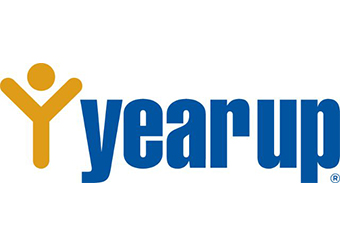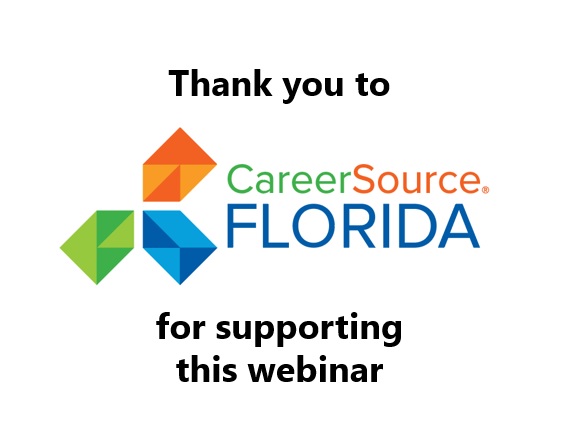 Companies continue to face a talent shortage in key areas. One of the proven ways to help young people prepare for these jobs is through education beyond high school and meaningful career experiences, along with wraparound supports.
Companies continue to face a talent shortage in key areas. One of the proven ways to help young people prepare for these jobs is through education beyond high school and meaningful career experiences, along with wraparound supports.
On May 12, Theodore Graham, Director of Admissions for Year Up Jacksonville, Ferrisa Connell, External Relations Manager for Year Up Tampa Bay, and Sheri Webber, External Relations Manager for Year Up Jacksonville, joined FCAN’s Kathy McDonald, Assistant Director for Network Partnerships, to discuss how Year Up works to close this Opportunity Divide through its year-long intensive program. The nonprofit combines marketable skills with stipends, internships, and college credit to place young adults on a path toward economic mobility.
The webinar opened with remarks from Michelle Dennard, CEO of webinar sponsor CareerSource Florida. Dennard noted the shared sensibilities between CareerSource Florida and FCAN’s work.
“We too are believers in ‘Opportunity for Everyone,’ one of (FCAN’s) Seven Conditions for Success,” Dennard said referencing FCAN’s new strategic plan. “We work hard every day to make that a reality for our fellow Floridians.”
Disconnected Youth in Florida
Disconnected youth are young people ages 16-24 who are not in school and not working.
In Florida, 11.7% of young people in this age range are disconnected, which is close to the 11.5% national average. That figure translates to 264,400 young Floridians who, with the right support, can build the skills needed to fill jobs in areas with chronic talent shortages.
The rate of disconnection among Florida youth also varies by race and ethnicity. Disconnection for black (15.9%) and Latino (12.0%) youth slightly outpace their white peers (10.1%), though all represent unrealized talent.
Get to Know: Year Up
An estimated 12 million jobs requiring postsecondary education will go unfilled in the next decade. Each year, employers struggle to find young, diverse talent while 5 million young adults remain disconnected from stable college and career pathways due to socio-economic inequities.
Year Up’s mission is to ensure that young adults gain the skills, experiences, and support that will empower them to reach their potential through careers and higher education. Phase 1 of the year-long program is focused on learning and development for the first six months, while Phase 2 involves the students interning at a corporate partner.
Upon completing their year, students earn college credit and industry certification. Each student also creates a postsecondary education plan. Interns who stay on with their employer are working for organizations that value and support the continuing education of their workers.
The Year Up Impact
Since its inception in 2000, Year Up has served more than 29,000 students in 26 cities, and the nonprofit projects it will work with more than 5,000 students this year. In Florida, Year Up currently supports Opportunity Youth in Jacksonville, Miami-Dade and Tampa Bay.
About 90% of graduates are employed or enrolled in postsecondary education within 4 months of program completion. Additionally, the average starting wage for Year Up graduates is $21/hour, which is equivalent to a $42,000 year annual salary.
Year Up alumni are also encouraged to pay it forward and “lift while they climb” by helping future students while they continue to grow using the foundation laid during their time in the program.
Show Notes
Know a student who could benefit from participating in Year Up? Please encourage them to apply for the fall class.
To learn more about Year Up and building college and career readiness in young adults — or to view the webinar and download the presentation — take advantage of these resources:
Year Up Videos:
Economic Opportunity – The American Dream
Worth the Work – Graduation video
Year Up By the Numbers: Outcomes and Impact
Useful Links:
Data visualization on youth disconnection by state, county and congressional district (Measure of America)
Making the Connection: Transportation and Youth Disconnection (Measure of American Youth Disconnection report)
Be sure to visit our Past Webinars page for access to recordings and downloadable material from FCAN’s previous presentations.

